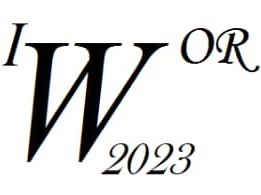Ponente
Descripción
The collection of urban solid waste in the city of Cienfuegos is a service provided by the Municipality's Communal Services Company (MCSC), a task of great social, environmental and economic importance. For this reason ESCM is interested in performing this function effectively and efficiently, searching for reducing the costs and increasing its service levels. One of the most used mathematical models to solve this problem is the Chinese Postman Problem. This model aims to find the shortest path in a network, ensuring that all its arcs (streets) are visited at least once. In addition to this requirement, the street direction, number and capacity of collection cars, etc. must be considered. In this work, two mathematical models are presented aimed at determining the optimal collection routes, taking as criteria, in the first case, the total distance to be traveled by the collection cars, and, in the second one, the total travel time. First we consider distance matrix and a deterministic approach for its solution, but, in the second case we use a fuzzy travel time matrix. This study aims at find the optimal routes (minimal total distance / traveltime) for the solid waste collection in Cienfuegos, which help Communal Services to reduce their costs, the fuel consumption and the emission of polluting gases into the atmosphere, while increasing the quality of the provided services.
Keywords: Solid waste collection, Chinese postman problems with fuzzy travel time

